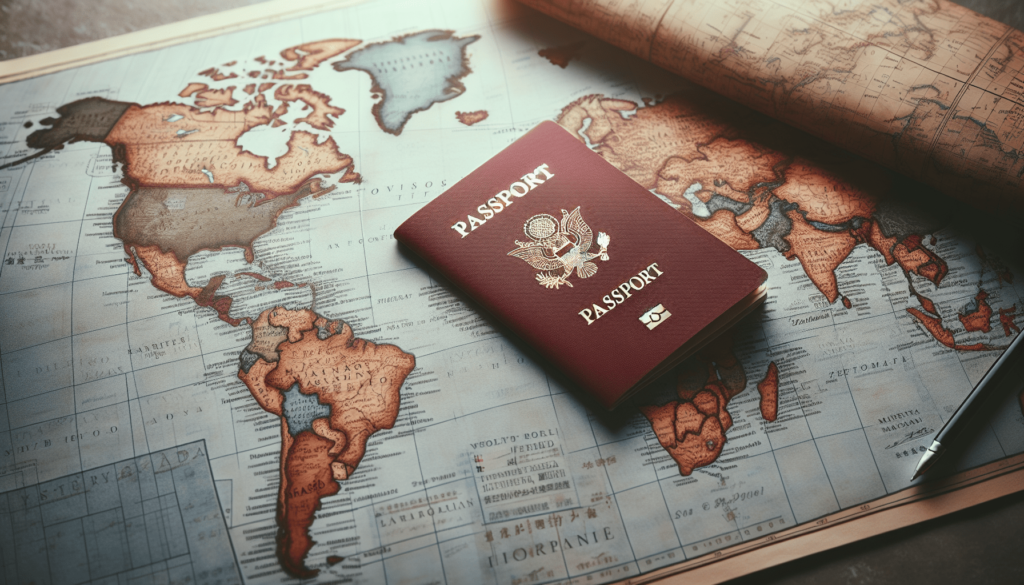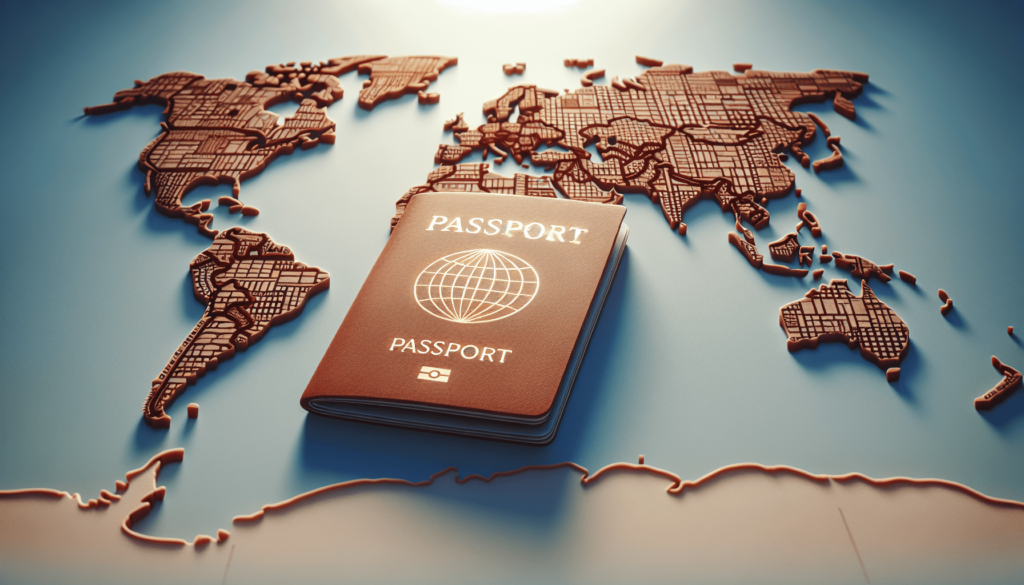Retiring abroad can be an exciting adventure, but it often comes with the challenge of navigating language barriers. Whether you’re dreaming of relocating to a charming French village or a sunny beach in Spain, mastering a new language can seem daunting. In “What Are The Language Barriers When Retiring Abroad And How Can I Overcome Them?” you’ll discover the common linguistic hurdles retirees face and practical strategies to overcome them. With the right tools and mindset, you can transform these challenges into opportunities for growth and connection in your new home. Have you ever imagined sipping coffee from a picturesque balcony overlooking stunning landscapes in a faraway country? For many, retiring abroad is a dream come true. But, have you considered the language barriers when retiring abroad and how you can overcome them?

Check out our recommended retirement gifts!
The Dream vs. Reality of Retiring Abroad
Retiring in another country can be exciting, adventurous, and refreshing. However, it also presents its share of challenges, one of the most significant being language barriers. Understanding and appreciating these barriers is the first step in overcoming them.
The Impact of Language Barriers
Language barriers can affect your daily life and your overall experience in a new country. They can make even the simplest of tasks, such as grocery shopping or visiting a doctor, daunting. In addition, these barriers can isolate you from the local community, making it harder to establish friendships and social circles.
Identifying Potential Language Barriers
Before making a move, it’s crucial to identify the potential language barriers in your destination country. Here are some common barriers you might encounter:
Difficulty in Understanding Local Dialects and Slang
Even if you’re familiar with the basic language, local dialects and slang can differ significantly from what you’ve learned. This can make comprehension tricky and might leave you feeling lost in conversations.
Limited Formal Language Training
Many people who retire abroad may not have had formal training in the local language. Conversational proficiency and formal language can differ vastly, leading to misunderstandings and communication breakdowns.
Technological Language Barriers
Think about technical setups like internet connections, healthcare services, and transportation systems. If you’re not familiar with the local terminology or procedures, navigating these services can become an arduous task.
| Barrier | Impact | Example |
|---|---|---|
| Local Dialects and Slang | Difficult to understand conversations | Understanding regional Spanish slang in Mexico as opposed to Spain’s standard Spanish |
| Limited Formal Training | Miscommunications in important settings | Explaining symptoms to a doctor without proper medical vocabulary |
| Technological Language Barriers | Challenges in using essential services | Navigating customer service lines for setting up utilities |
Check out our recommended retirement gifts!
Practical Steps to Overcome Language Barriers
Now that you know what you might be up against, let’s dive into ways to overcome these challenges.
Learn the Basics Before You Move
Start learning the language basics even before you pack your bags. This proactive approach will give you a head start.
- Online Courses: Platforms like Duolingo, Babbel, and Rosetta Stone offer structured courses.
- Community Classes: Check if local community centers or colleges offer language courses.
- Language Exchange: Websites like Tandem offer language exchange programs where you can practice with native speakers.
Immerse Yourself in the Language
Once you’ve arrived in your new home, immersion is key. Engage with the language whenever possible.
- Speak with Locals: Don’t be afraid to make mistakes. Locals often appreciate your effort to speak their language.
- Join Local Groups: Participate in community activities, clubs, or groups that interest you. This exposes you to conversational language and helps you make friends.
- Media Consumption: Watch local TV shows, listen to radio stations, and read newspapers to familiarize yourself with everyday language.
Use Technology to Your Advantage
Innovative tech solutions can significantly ease language barriers.
- Translation Apps: Google Translate and Microsoft Translator can be lifesavers for quick translation needs.
- Voice Assistants: Smart speakers like Alexa or Google Assistant can guide you through translations and common phrases.
- Language Learning Apps: Continue practicing with apps to keep improving your proficiency.
| Solution | Tools and Methods |
|---|---|
| Learning Basics | Online courses, community classes, language exchange programs |
| Immersion | Speaking with locals, joining groups, consuming local media |
| Technological Aids | Translation apps, voice assistants, language learning apps |
Seek Professional Help
Sometimes, professional assistance can make a world of difference.
- Language Tutors: Hiring a tutor for personalized learning can help you grasp the language quicker.
- Cultural Coaches: Coaches can guide you through cultural nuances and etiquette, making your transition smoother.
- Local Services: Engage with local relocation services that offer language and translation assistance.
Preparing for Specific Scenarios
Different situations will demand different levels of language proficiency. Here’s a breakdown to help you prepare:
Daily Errands
Running daily errands like grocery shopping, banking, or using public transport can seem overwhelming initially.
- Flashcards: Create flashcards for common phrases and terms related to shopping, banking, and transportation.
- Practice Pronunciation: Practice pronunciation to ensure you’re understood when asking for directions or buying items.
Healthcare Settings
Clear communication is critical when discussing your health.
- Medical Vocabulary: Familiarize yourself with basic medical vocabulary.
- Translation Services: Many hospitals offer translation services. Don’t hesitate to ask for help.
- Health Documents: Carry translated versions of your medical records and documents for easier communication.
Legal Matters
Legal documents and proceedings can be complex, often using advanced language.
- Legal Assistance: Engage with a legal advisor who is bilingual or offers translation services.
- Understand Basic Legal Terms: Familiarize yourself with common legal terms that might be crucial for property, banking, or residency-related issues.
| Scenario | Preparation Methods |
|---|---|
| Daily Errands | Flashcards, practice pronunciation |
| Healthcare | Learn medical terms, translation services, translated documents |
| Legal Matters | Bilingual legal assistance, knowledge of basic legal terms |

Embracing the Cultural Aspect
Language is a significant part of the culture. Here’s how you can culturally adapt:
Participate in Cultural Activities
Engaging with local culture and traditions makes you more comfortable and accepted.
- Festivals and Celebrations: Attend local festivals and celebrations to understand cultural values and traditions better.
- Local Cuisine: Visit local restaurants or cooking classes to learn about the cuisine and its cultural significance.
- Cultural Workshops: Participate in workshops that teach traditional dance, crafts, or other cultural aspects.
Respect Local Etiquette
Understanding and respecting local etiquette can go a long way in forming positive relationships.
- Social Norms: Learn about social norms, greetings, and common courtesies.
- Dress Codes: Be mindful of appropriate attire for different occasions.
- Communication Styles: Understand the preferred communication styles, such as indirect versus direct communication.
Building Relationships
Making an effort towards learning the language and culture can help you form meaningful relationships.
- Join Clubs or Groups: Whether it’s a local book club or a sports team, joining groups can help you mingle and form friendships.
- Volunteer: Volunteer for community services or local NGOs to interact with locals and give back to your new community.
- Language Exchange: Form language exchange partnerships where you teach your native language while learning the local language.
The Importance of Patience and Positivity
Overcoming language barriers takes time and effort. Being patient and maintaining a positive attitude will go a long way.
Celebrate Your Progress
Acknowledge your achievements, no matter how small. Successfully ordering a meal in the local language or having a basic conversation are all accomplishments worth celebrating.
Stay Persistent
Don’t get discouraged by occasional setbacks. Persistence is key to mastering a new language. Adjust your learning methods if necessary and keep pushing forward.
Keep an Open Mind
Being open to new experiences and cultures will enrich your retirement abroad. Embrace the journey and enjoy every step of your new adventure.
Conclusion
Retiring abroad can be one of the most fulfilling experiences of your life, but understanding and overcoming language barriers is vital to making the most of this new chapter. By preparing in advance, immersing yourself in the local culture, leveraging technology, and seeking professional help, you can navigate these challenges effectively. With patience and a positive outlook, you’ll find yourself not just adapting to but thriving in your new environment. So, don’t let language barriers deter you from living your dream retirement abroad. Embrace them as opportunities for growth and adventure.



